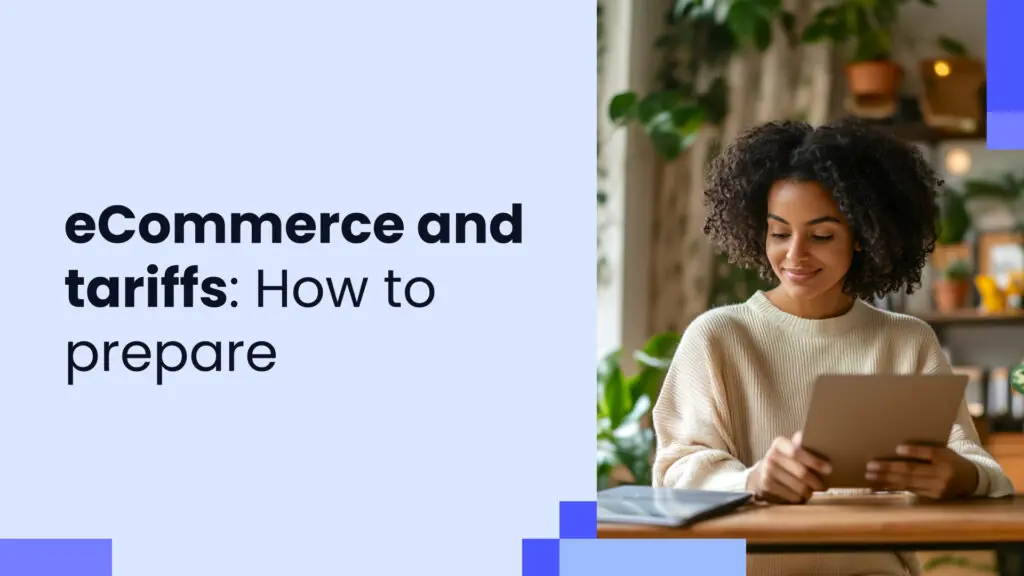Tariffs are making headlines again, and eCommerce sellers should take notice. Simply put, tariffs are taxes on imported goods, and new ones could make sourcing products more expensive – especially for those relying on suppliers from China.
Fund your inventory with 8fig!
Higher costs mean tighter profit margins, supply chain shifts, and pricing challenges. But with the right strategy, sellers can stay ahead.
This guide breaks down what’s happening, why it matters, and how to prepare:
What are tariffs and why do they matter?
A tariff is a tax placed on imported goods, making them more expensive for businesses buying from overseas suppliers. Governments use tariffs to regulate trade, protect domestic industries, or respond to international policies.
As of the writing of this article (February 2025), new tariff policies are being discussed, particularly on imports from China. According to Easyship, previous tariffs have already raised costs for eCommerce sellers, and new measures could increase expenses even further.
Who’s most affected? Sellers who rely on China for sourcing products or materials. If you’re importing inventory, tariffs could raise prices, squeeze profit margins, and disrupt supply chains – all of which can impact your bottom line.
Recent developments in tariff policies
In early April 2025, the current US administration implemented significant tariff measures affecting eCommerce businesses:
- Universal tariff implementation: A baseline 10% tariff has been imposed on all imports into the United States. This policy aims to address trade imbalances and protect domestic industries.
We’ll ask a few quick questions to better understand your specific business needs. Then, we’ll build a funding plan tailored to your expenses.
- Country-specific tariffs: Higher tariffs have been applied to imports from specific countries with which the US has significant trade deficits. For example, imports from China now face a 34% tariff, while goods from the European Union are subject to a 20% tariff.
These developments have led to increased costs for imported goods, directly impacting eCommerce retailers who rely on international suppliers. It’s crucial for businesses to stay informed and adapt their strategies accordingly to mitigate these challenges.
Subscribe to the eCommerce newsletter for
top industry insights
Might also interest you:
The impact on eCommerce sellers
New tariffs could reshape the way eCommerce sellers operate, especially those sourcing products from China. Here’s how:
- Rising costs: Import taxes mean suppliers may charge more, making each unit pricier.
- Tighter profit margins: Sellers must either absorb the cost or pass it on to customers, which can impact competitiveness.
- Supply chain disruptions: Some sellers may need to shift sourcing to other countries, which takes time and effort.
- Potential shipping delays: Tariffs can slow down customs processing or make certain shipping options more expensive.
For eCommerce businesses, these changes can be costly, but not impossible to manage. The key is staying agile and planning ahead to minimize risks and keep cash flow steady.
How to prepare and stay nimble
Tariffs may be out of your control, but how you respond to them isn’t. Here’s how to protect your margins and keep your business running smoothly –
- Plan for increased costs: Review your budget and forecast how much extra you might be paying for imported goods. If possible, negotiate better rates with suppliers or explore bulk purchasing to offset costs.
- Improve cash flow management: When expenses rise, predictable cash flow is essential. Ensuring steady access to working capital helps you cover unexpected fees without disrupting operations.
- Stay agile with just-in-time funding: 8fig’s cycle-based funding gives sellers the flexibility to adjust payments, secure capital as needed, and scale smartly – without being locked into rigid loans.
- Explore alternative suppliers: If tariffs make your current sourcing unsustainable, consider suppliers from other regions or domestic manufacturers to avoid import fees.
- Optimize pricing strategy: Instead of passing costs straight to customers, look at marginal price adjustments, bundling strategies, or value-based pricing to remain competitive.
Pro tip
Staying ahead of tariff changes isn’t just about cutting costs – it’s about smart financial planning. With the right funding and supply chain strategy, your business can adapt, grow, and stay profitable – no matter what the market throws your way.
Plan your restock accurately with 8fig
Conclusion
Tariffs can create cost challenges and supply chain disruptions, but with the right strategy, eCommerce sellers can stay ahead. Planning for increased costs, securing reliable cash flow, and staying agile are key to protecting margins and ensuring long-term stability.
Learn how 8fig’s flexible funding can help your business stay ahead – no matter the market shifts.
Have article ideas, requests, or collaboration proposals? Reach out to us at editor@8fig.co – we’d love to hear from you.



